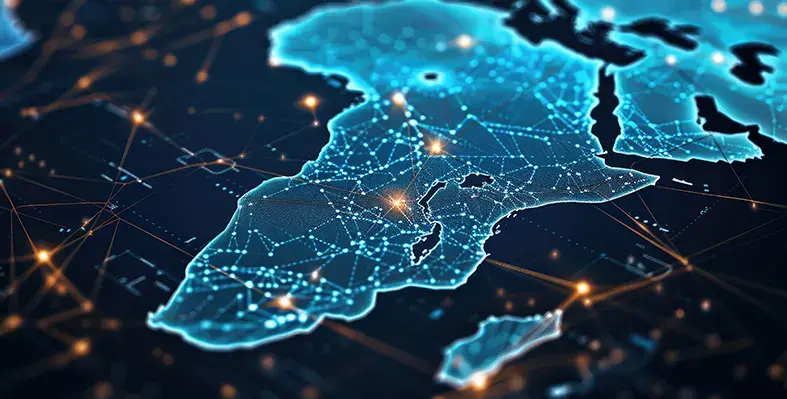
World Bank joins AfDB and Mastercard to expand digital access for 100 million people and businesses in Africa
The World Bank Group has joined the Mobilizing Access to the Digital Economy (MADE) Alliance: Africa as a co-chair, supporting the initiative’s mission to deliver digital access to essential services for 100 million individuals and businesses across Africa by 2034
The Bank will serve alongside current co-chairs and founding members — the African Development Bank Group and Mastercard — combining efforts to expand the reach of critical digital solutions across the continent.
This partnership aligns with the World Bank Group’s strategy to drive digital transformation by broadening access to secure, affordable, and high-quality broadband and data connectivity, while ensuring that diverse digital services can integrate seamlessly for the benefit of users. The Bank will contribute its expertise, data-driven insights, and experience in enabling sustainable digital change.
The MADE Alliance is prioritising opportunities in agriculture, recognising the sector’s potential for digital technologies to accelerate development. World Bank-supported “Digital Agriculture Roadmaps” will unite stakeholders in crafting tailored action plans for specific countries, enabling the alliance to reach more farmers with impactful solutions.
“The World Bank Group is deeply committed to expanding inclusive digital access across Africa and connecting farmers to the digital tools they need to reach markets, access finance, and grow their businesses. Joining the MADE Alliance will help accelerate both of these goals, driving economic growth and improving livelihoods across the continent,” said Sangbu Kim, vice-president for Digital at the World Bank. “By bringing together our digital and agriculture expertise, global knowledge, and local experience, we can help scale lasting, transformational impact.”
The World Bank Group formally joined the MADE Alliance in late April during the alliance’s Steering Committee meeting, held alongside the International Monetary Fund and World Bank Spring Meetings in Washington, D.C.
“Two of the African Development Bank Group’s priority areas are to Feed Africa and Improve the Quality of Life for the People of Africa. The MADE Alliance: Africa brings us closer to achieving those goals by connecting the continent’s smallholder farmers to digital services that lead to greater food production, greater access to markets, financing and farming practices, as well as to increased incomes,” said Dr Beth Dunford, vice-president for Agriculture, Human and Social Development at the African Development Bank, which has committed US$300mn to the alliance’s first five years of programming. “The World Bank’s demonstrated expertise in the digital connectivity and agriculture sectors enables the MADE Alliance: Africa to reach more farmers eager to be part of Africa’s agricultural transformation.”
“The MADE Alliance brings complementary partners together to execute and implement programs that target the same regions and communities, allowing us to amplify our impact,” said Tara Nathan, founder and executive vice-president of community pass, Mastercard. “The World Bank brings enormous expertise in digital transformation and agriculture, and we are honored they have joined the alliance to deploy resources more efficiently and accelerate our work to help bring everyone into the digital economy.”

























